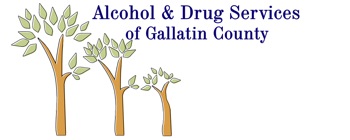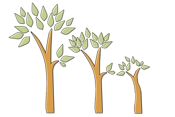|
|
|

Ages & stages for parenting youth in drug use prevention
A Resource Guide For Parents & Families
|
On this Page
Visit other Resource Pages
The
following ideas are age-specific, but you may use many of the tips under
each age group with older youth. Download the Stages of Use" PDF for easier reading and printing.
Preschoolers
 Talk a lot about what it means to keep your body healthy, including healthy food,
exercise, brushing teeth etc. Talk a lot about what it means to keep your body healthy, including healthy food,
exercise, brushing teeth etc.
 When your child becomes frustrated, or makes poor decisions that are against the rules, take time to help him problem-solve and connect his decisions
to the consequence. This will strengthen his decision-making skills early on.
When your child becomes frustrated, or makes poor decisions that are against the rules, take time to help him problem-solve and connect his decisions
to the consequence. This will strengthen his decision-making skills early on.
 Point out dangerous household chemicals and medications, and introduce the "poison" idea.
Point out dangerous household chemicals and medications, and introduce the "poison" idea.
 If you are a smoker, make the wise decision to quit or smoke away from your child. Your role modeling at this early age will affect your child.
Even though you smoke, let your child know how dangerous it is, and that you do not want them to.
If you are a smoker, make the wise decision to quit or smoke away from your child. Your role modeling at this early age will affect your child.
Even though you smoke, let your child know how dangerous it is, and that you do not want them to.
|
|
Kindergarten through third grade (5-8 years old)
|
 Continue to encourage healthy decisions.
Continue to encourage healthy decisions.
 Explain the idea of addiction � that drug use can become a very bad habit and harmful to the body.
Explain the idea of addiction � that drug use can become a very bad habit and harmful to the body.
 Explain how foods, poisons, medicines and illegal drugs differ.
Explain how foods, poisons, medicines and illegal drugs differ.
 Tell your child that adults drink, but children may not, even in small amounts � it�s harmful to children�s developing brains and bodies.
Tell your child that adults drink, but children may not, even in small amounts � it�s harmful to children�s developing brains and bodies.
 Get involved and stay involved and connected with your child.
Get involved and stay involved and connected with your child.
 Get to know the parents of your children�s friends.
Get to know the parents of your children�s friends.
 Learn about the current laws and school policies regarding alcohol, tobacco and other drugs.
Learn about the current laws and school policies regarding alcohol, tobacco and other drugs.
 Teach them the immediate and long term affects of drug use. Teach them the immediate and long term affects of drug use.
 Make your rules about alcohol, tobacco and other drug use very clear to your
child. Make your rules about alcohol, tobacco and other drug use very clear to your
child.
 Begin to rehearse potential scenarios in which friends offer drugs. Talk specifically
about peer pressure in all areas of the child�s life. Begin to rehearse potential scenarios in which friends offer drugs. Talk specifically
about peer pressure in all areas of the child�s life.
 Make if very clear that you are on their side and will be with them. Make if very clear that you are on their side and will be with them.
 Get your child involved in activities outside of school. Encourage them, take them,
get them signed up. Get your child involved in activities outside of school. Encourage them, take them,
get them signed up.
 Arrange to have your child looked after and engaged from 3-5pm. This is a time
when your child will be exposed to substances, and the possibility of using drugs will Arrange to have your child looked after and engaged from 3-5pm. This is a time
when your child will be exposed to substances, and the possibility of using drugs will
go up.
 Call parents whose home is to be used for a party. Call parents whose home is to be used for a party.
 Make it easy for your child to leave a place where substances are being used. Make it easy for your child to leave a place where substances are being used.
 Set curfews and enforce them. It�s not pestering, it�s parenting. Set curfews and enforce them. It�s not pestering, it�s parenting.
 Encourage open dialogue with your children about their experiences. Tell your Encourage open dialogue with your children about their experiences. Tell your
child, "I love you and trust you, but don�t trust the world around you, and need
to know what�s going on in your life so I can be a good parent to you."
 Act on your suspicions. If you sense that your child is using drugs, or has radically
Act on your suspicions. If you sense that your child is using drugs, or has radically
changed behavior, seek help immediately. Your instinct is most likely accurate.
|
|
Grades four
through six (9-11 years old)
|
 Get involved and stay involved and connected with your child. Get involved and stay involved and connected with your child.
 Get to know the parents of your children�s friends. Get to know the parents of your children�s friends.
 Learn about the current laws and school policies regarding alcohol, tobacco and
other drugs. Learn about the current laws and school policies regarding alcohol, tobacco and
other drugs.
 Teach them the immediate and long term affects of drug use. Teach them the immediate and long term affects of drug use.
 Make your rules about alcohol, tobacco and other drug use very clear to your child. Make your rules about alcohol, tobacco and other drug use very clear to your child.
 Begin to rehearse potential scenarios in which friends offer drugs. Talk
specifically about peer pressure in all areas of the child�s life. Begin to rehearse potential scenarios in which friends offer drugs. Talk
specifically about peer pressure in all areas of the child�s life.
 Make if very clear that you are on their side and will be with them. Make if very clear that you are on their side and will be with them.
 Get your child involved in activities outside of school. Encourage them, take
them, get them signed up. Get your child involved in activities outside of school. Encourage them, take
them, get them signed up.
|
Grades 10-12 (15-17 years old)
|
 All of the tips for grades 7-9 apply here too.
All of the tips for grades 7-9 apply here too.
 Allow your discussions to go deeper into how drug use does not mix with pregnancy, the deadly affects of combining drugs, how addiction can hit anybody,
and the link of violence with drug use.
Allow your discussions to go deeper into how drug use does not mix with pregnancy, the deadly affects of combining drugs, how addiction can hit anybody,
and the link of violence with drug use.
 Help your teen understand that you will be there for him, to talk about his own potential use, and that of a friend of his.
Help your teen understand that you will be there for him, to talk about his own potential use, and that of a friend of his.
 Talk to your teen about how to avoid potentially dangerous situations that may
put him in the path of alcohol and other drug use. Talk to your teen about how to avoid potentially dangerous situations that may
put him in the path of alcohol and other drug use.
 Love your child, hug your child, play with them. It�s your child�s job to let you
know that they are independent and do not "need you". It is your job to not believe that message and stay connected anyway. Love your child, hug your child, play with them. It�s your child�s job to let you
know that they are independent and do not "need you". It is your job to not believe that message and stay connected anyway.
|
|
What can parents do?
What if the answer is "yes?" Your child is
using alcohol and/or drugs?
In a small percentage of cases, parents can work with their own kids to get them to stop. This might be easiest when the
young person is just using occasionally, to have a good time.
Of course, the earlier you start talking to your children about alcohol and/or drugs, the better the chances are they won�t become involved with them.
If a child reaches the age of 20 without using alcohol, tobacco or marijuana, the probability is almost zero he or she will ever develop a serious
drug problem.
If you have questions or concerns about alcohol, tobacco or other drug use in your child or family, call the Adolescent Resource Center at 586-5908.
You will be able to talk to someone who can help give you good, confidential, and caring information. |
|
-Other
Parenting Resource Pages -
|
|
|
|
 |
Alcohol and Drug Services of Gallatin County
(406) 586-5493
|

|
|